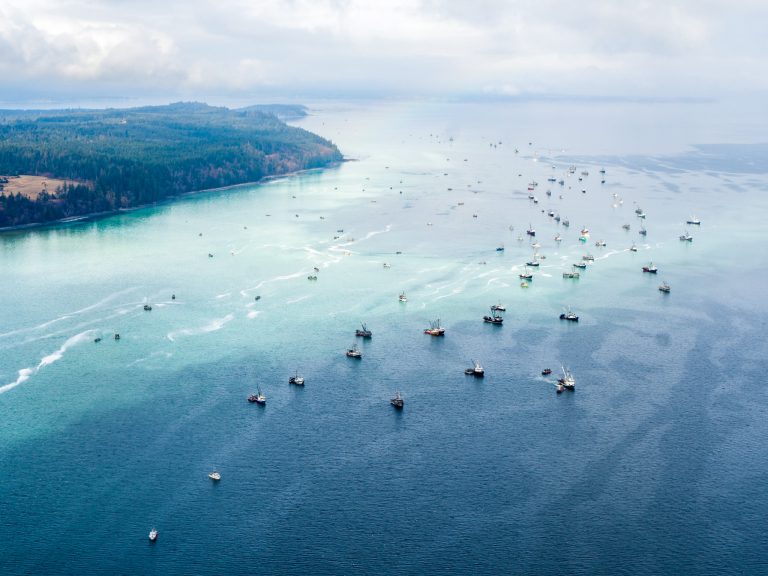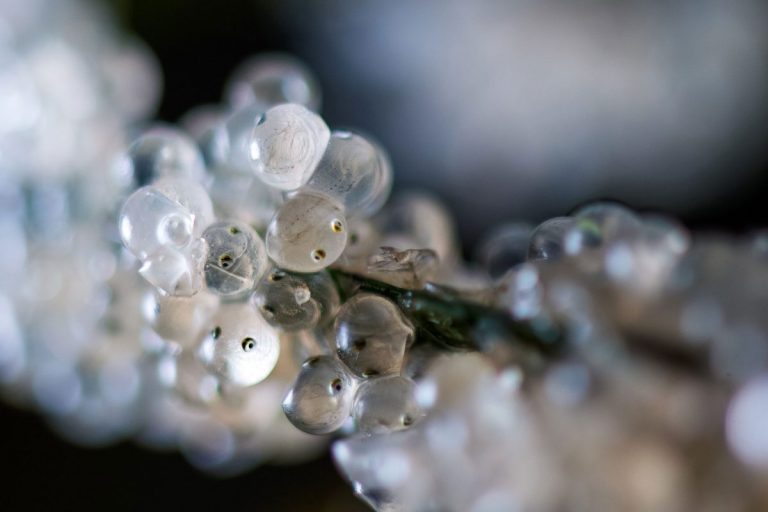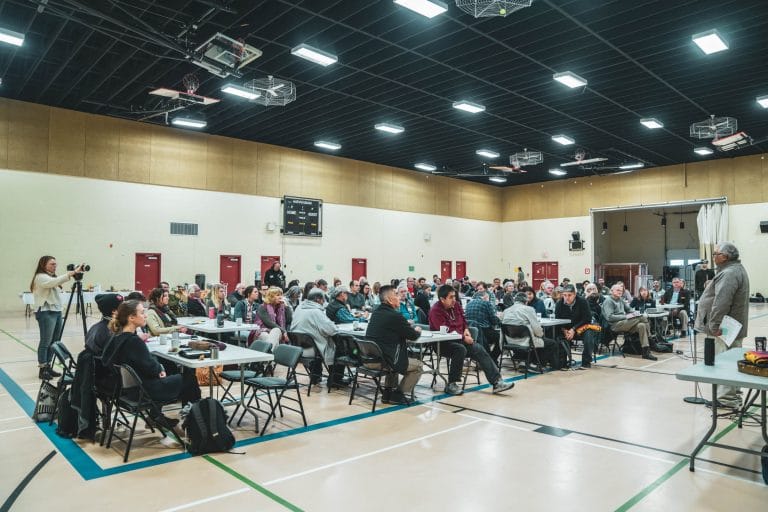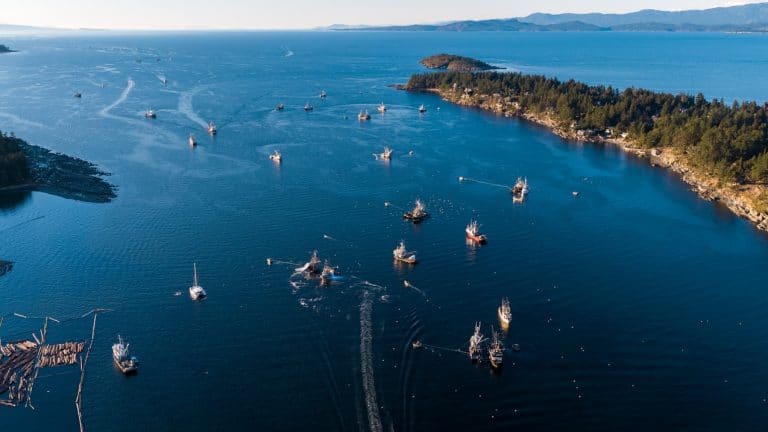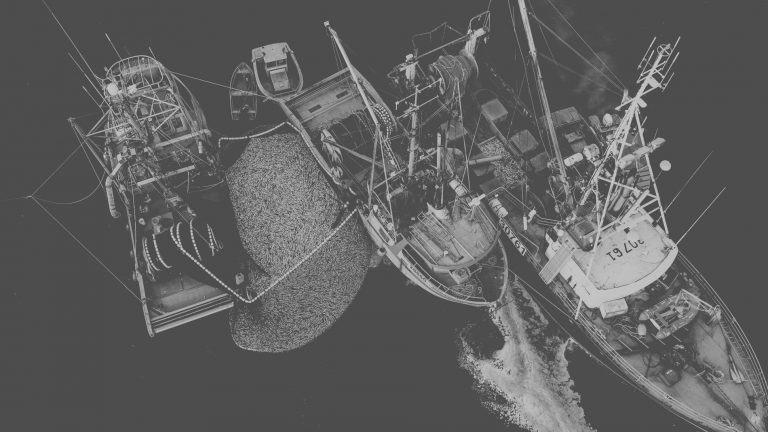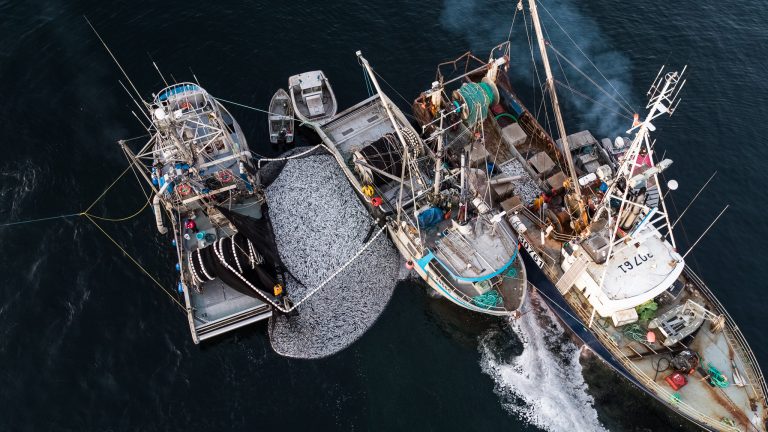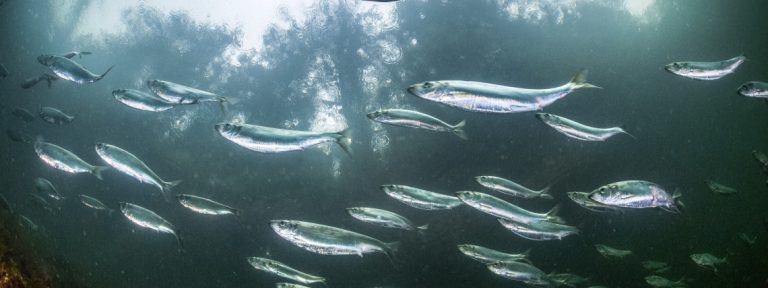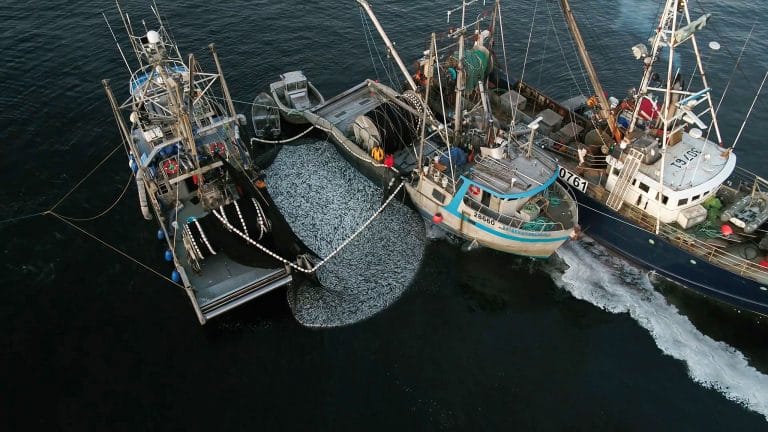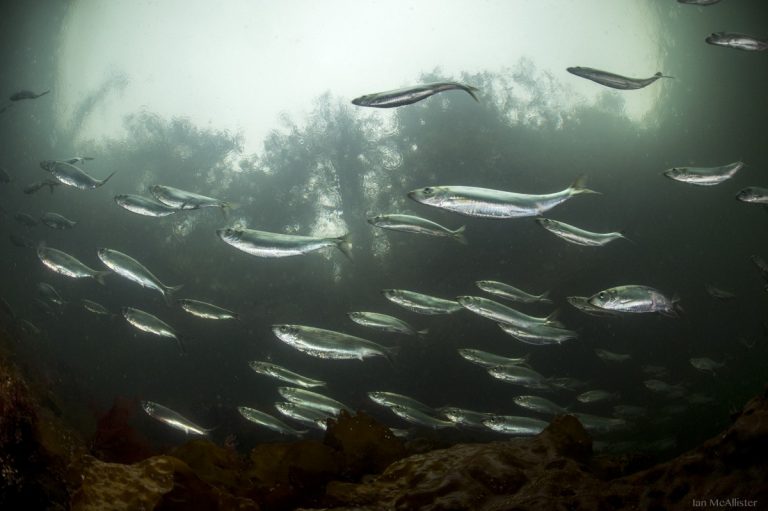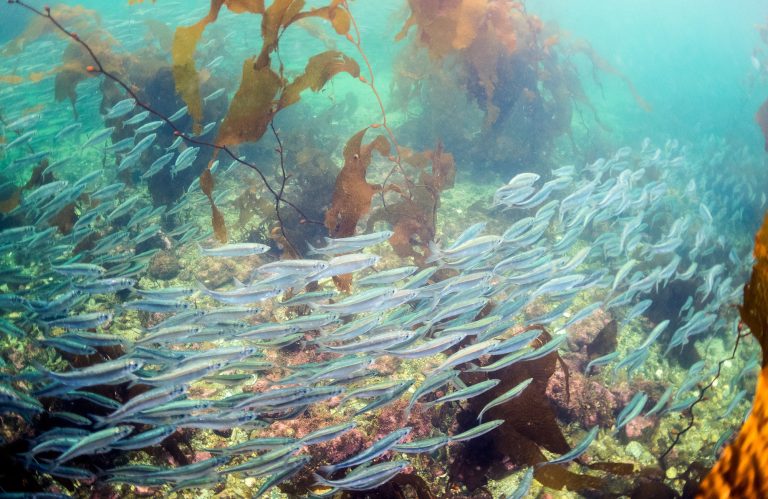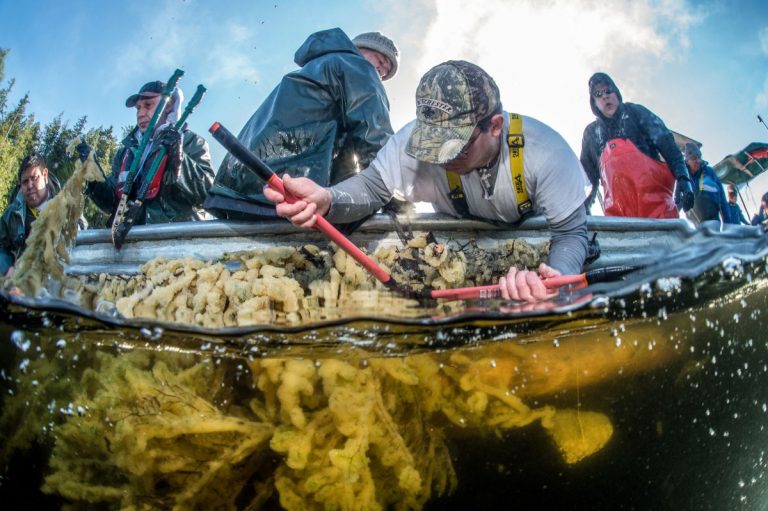Contact Us
Email: info@pacificwild.org
Phone: 250-380-0547
Main Office
1529 Amelia Street, Victoria, BC
Lək̓ʷəŋən Territory
V8W 2K1
Field Office
P.O. Box 26
Denny Island, BC
Haíɫzaqv Territory
V0T 1B0
Happy Earth Day! 🐻🐺🦅🐋🐟🦭
Pacific Wild and countless conservationists around the world are working hard to raise awareness and provide education to protect the natural treasures of our planet. We encourage you to get involved in your community, write to your local representatives, and spread the word about the environmental issues that matter most to you.
Participate in our campaigns and add your voice for a meaningful change! Link in our bio.
#Wildlifeconservation #wildlifeprotection #planetearth #conservationawareness #conservationorganization #davidattenborough
2608
11

2608
11
📣 Opportunity alert! At Pacific Wild, we are excited to announce that we have an open position for an accomplished and enthusiastic Communications Manager.
Do you have a background in journalism and/or story telling? Are you both analytical and creative? This full-time role requires someone with a proven record of running exciting campaigns across various channels and platforms. The chosen candidate will be instrumental in creating visually inspiring, strategic and engaging campaigns that are firmly grounded in science. Our ultimate goal is to achieve positive conservation outcomes, and we need someone who shares our passion and is ready to contribute to this exciting journey for years to come. Find the full job description linked on our bio.
📝Please apply at hr@pacificwild.org with your resume and cover letter outlining your background and experience. Applications will be accepted until May 15, 2024 at midnight.
This is a full-time, permanent position working from our office in Victoria, B.C., Canada.
#wildlife #nature #career #team #DreamJob #Hiring #Communications #Conservation
650
0

650
0
On March 23, the killer whale calf known as Kʷiisaḥiʔis (or T109A3A by researchers) became entrapped in a tidal lagoon near Zeballos following the fatal stranding of her mother Spong (T109A3). It has been inspiring to see so many people coming together to root for this young whale in the past weeks.
According to Bay Cetology, Kʷiisaḥiʔis continues to show very little evidence of independent feeding. A subtle depression behind her head was noticed this week indicating that her body mass has started to decline. The decision was made by cetacean experts to attempt to provision her with some harbour seal meat. It has been reported that though Kʷiisaḥiʔis took a few attempts to understand what was happening, she proceeded to consume all 18 kg provided.
Over the last month, a team of individuals from Bay Cetology, Department of Fisheries and Oceans, the Ehattesaht and Nuchatlaht First Nations have been tirelessly dedicated to exploring all potential options to rescue this little whale. At this point all options considered are complex and involve some risk, but last night’s successful provisioning represents a milestone in the continued efforts to save Kʷiisaḥiʔis.
Pacific Wild is expressing immense gratitude to Jared Towers, DFO, the Ehattesaht and Nuchatlaht First Nations and the many others involved for their time, care and dedication toward this challenging situation. For further updates on how to stay involved follow @baycetology 🐋
🎥Drone footage provided by @jtcoastal under MML-42
📸 of T109C family by @sydneycdixon
#killerwhale #marinemammalresponse #baycetology
3546
89

3546
89
Words like “aggressive,” “dangerous,” and “conflict” often dominate media headlines and government reports, shaping public perceptions of wildlife, especially large carnivores like bears and wolves. These words instill fear and misunderstanding, unfairly placing blame on animals rather than addressing human behavior and perspectives.
Irrational fears and misconceptions hinder conservation efforts and media sensationalism perpetuates myths and overshadows instances of peaceful coexistence between humans and wildlife. Pacific Wild advocates for a shift toward a compassionate understanding of our wild neighbors. Bears and wolves have individual personalities and exhibit a wide range of different behaviours.
“No conservation effort can succeed without a profound change in our attitudes towards wildlife.” Dr. Gosia Bryja.
We must strive for fairer portrayals in the media and foster empathy for wildlife to ensure their protection and our coexistence.
Check the link in our bio to learn more and take action.
🎥 Ian McAllister
#grizzlies #savebcbears #wilflifeprotection #wildlifeconservation #coexistence
529
5

529
5
🛥️ Alert Giveaway! Have you always dreamed of exploring the landscapes and biodiversity of the Pacific Northwest? Now is your chance! 🥳
@frsclipper is partnering with @pacificwild to offer you a round-trip between Victoria and Seattle and give you the opportunity to explore the natural wonders of Vancouver Island and Washington state. 🤩
To enter:
🌲 Follow @frsclipper and @pacificwild on instagram
🌲Like this post and tag the travel buddy you want to make this trip with in the comments (you can tag as much people as you like, 1 tag = 1 entry)
🌲 Share in your story and tag us to increase your chance to be selected
Winners will be announced on May 6. Good luck! 🍀
In addition, for every trip booked throughout the month of April, @frsclipper will be donating a percentage of all onboard galley food sales to support Pacific Wild’s campaigns. If you’ve ever wanted to take this scenic passenger trip between these iconic cities and want to participate in conservation actions, April is the month to do it, and be sure to visit the galley during your trip.
🎥 @frsclipper, @iantmcallister
#collaboration #seattle #victoriaBC #giveaway #travel #pnw #vancouverisland #wildlifephotography #washingtonstate
1890
803

1890
803
🐳 Environmental DNA (eDNA) is a sampling technique that allows scientists to monitor biodiversity by collecting and analyzing genetic material (secretions, eggs, feces,...) that organisms shed into their environment. The non-profit conservation group Ocean Wise are using eDNA to study Bigg`s killer whales, North Pacific humpback whales and B.C.`s endangered Southern Resident killer whales. The research aims to provide valuable insights into whale populations, movements and distribution patterns to help inform conservation efforts and better understand their habitat needs.
🤝🏻 “The Council of the Haida Nation and the B.C. Government signed an agreement Sunday, officially recognizing Haida Gwaii’s ‘Aboriginal title,’ more than 20 years after the nation launched a legal action seeking formal recognition.” This historic pact shifts ownership and jurisdiction of land from the Crown to the Haida Nation in Haida Gwaii (formerly known as the Queen Charlotte Islands). The transfer of title is a monumental step towards recognizing Indigenous sovereignty and marks a milestone in Canada`s ongoing efforts towards reconciliation with Indigenous peoples.
🐟In an effort to help recover the Yukon River Chinook salmon run, the federal government and the State of Alaska have agreed to a 7 year moratorium on commercial and recreational fishing for the species, in the mainstem Yukon River and its Canadian tributaries. Although limited ceremonial harvest may be allowed depending on the health of the run, both sides recognize the importance of a healthy Canadian Chinook salmon run and the preservation of cultural practices of the Yukon First Nations and Alaska NativeTribes.
🐺The Mexican wolf population has grown continuously for the 8th year in a row. According to the latest count, the population has seen an increase, signifying positive strides in conservation efforts. The U.S. Fish and Wildlife Service credits various initiatives and collaborations aimed at protecting and restoring habitats, managing conflicts and bolstering breeding programs for this achievement. This upward trend reflects a promising advancement in the preservation of a critically endangered species.
1087
15

1087
15
© 2024 PACIFIC WILD • All Photography © Ian McAllister unless otherwise noted. Website by Affinity Bridge • Privacy Policy
• Terms of Service
